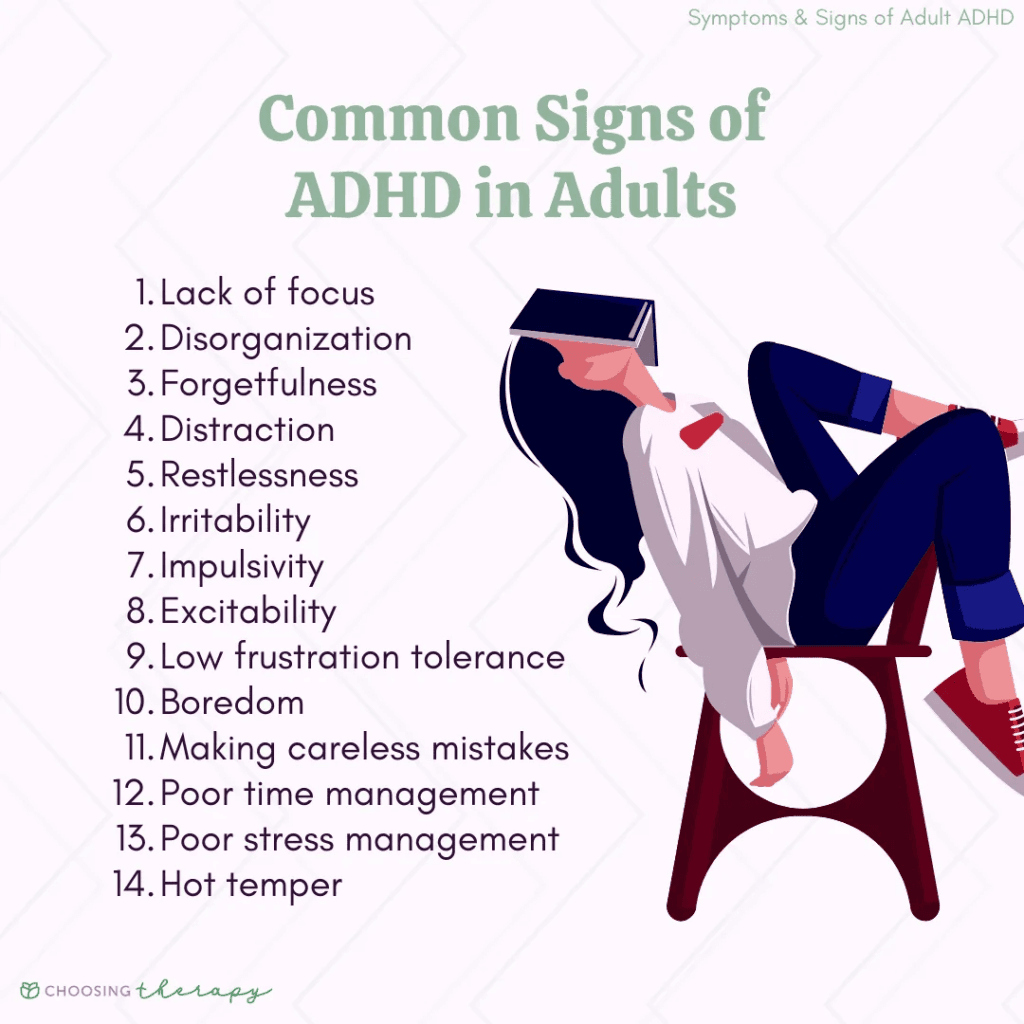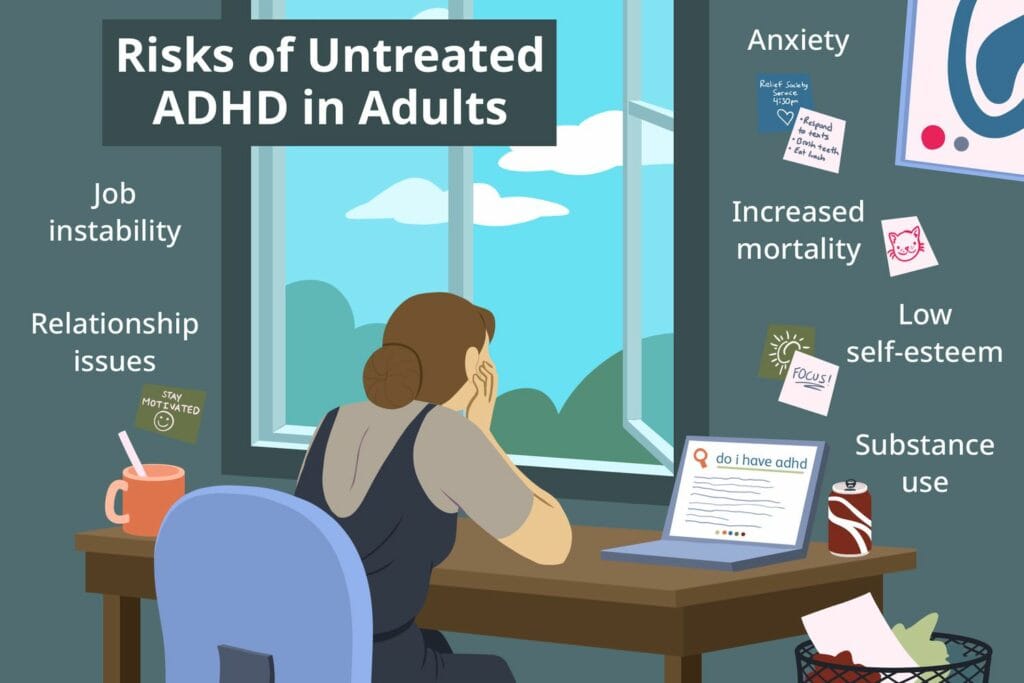
Understanding ADHD: Symptoms, Causes, and Effective Management
This condition (Attention-Deficit/Hyperactivity Disorder) affects millions of children and adults worldwide. It impacts focus, impulse control, and organization. However, with the right strategies, individuals can manage symptoms effectively and lead successful lives.
What Is ADHD?
This condition is a neurodevelopmental disorder that affects attention, hyperactivity, and impulsivity. People with ADHD often struggle with staying organized, completing tasks, and maintaining focus. While it is commonly diagnosed in childhood, many adults continue to experience symptoms.
Common Symptoms of ADHD
This conditions symptoms vary by individual, but the most common include:
- Difficulty paying attention
- Frequent forgetfulness
- Impulsivity
- Hyperactivity
- Trouble staying organized
- Difficulty following instructions
These symptoms can affect daily life, making school, work, and relationships more challenging.
What Causes ADHD?
The exact cause of this condition remains unknown, but researchers believe genetics play a significant role. Additionally, environmental factors, prenatal exposure to toxins, and brain structure differences may contribute to its development. However, this condition is not caused by poor parenting or lack of discipline.
How ADHD Is Diagnosed
Doctors diagnose the condition based on behavioral assessments and medical history. Typically, a psychologist, psychiatrist, or pediatrician evaluates symptoms and their impact on daily life. There is no single test for this condition, but structured interviews and questionnaires help confirm a diagnosis.
Effective ADHD Management Strategies
While ADHD has no cure, several strategies help manage symptoms effectively:
1. Medication
Stimulant medications like Adderall and Ritalin improve focus and impulse control. Non-stimulant medications also offer benefits for some individuals. A doctor can recommend the best option based on individual needs.
2. Behavioral Therapy
Behavioral therapy teaches coping skills to improve focus and organization. Cognitive-behavioral therapy (CBT) helps individuals develop better time-management and problem-solving skills.
3. Lifestyle Changes
Healthy habits improve the conditions symptoms significantly. A well-balanced diet, regular exercise, and sufficient sleep enhance focus and energy levels. Additionally, mindfulness practices help with impulse control and stress reduction.
4. Organizational Tools
Planners, to-do lists, and reminder apps keep tasks and schedules on track. Breaking tasks into smaller steps prevents feeling overwhelmed and boosts productivity.
5. Support Systems
Strong support from family, friends, and support groups makes a huge difference. Educating loved ones about this condition fosters understanding and patience.
Living with ADHD
This condition presents challenges, but it also comes with strengths like creativity, high energy, and problem-solving abilities. By embracing the right strategies, individuals can harness their strengths and thrive in various aspects of life.
If you suspect ADHD in yourself or a loved one, consult a healthcare professional for guidance. Proper diagnosis and management open the door to a fulfilling and successful future.
Note: This article is for informational purposes only and is not a substitute for professional medical advice. If you or someone you know is struggling with symptoms of bipolar disorder, please consult a qualified healthcare professional.

ADHD and the Occult: How Hyperfocus and Inattention Enhance Spiritual Practice
Many people view this condition as a challenge, but it can be a powerful tool for those practicing the occult. With the right approach, ADHD traits like hyperfocus and inattention can become assets in spiritual work. Instead of fighting these tendencies, occultists with ADHD can use them to deepen their practice and improve their results.
Harnessing Hyperfocus for Occult Mastery
Hyperfocus allows individuals with ADHD to concentrate intensely on a single task. This state of mind eliminates distractions and enables deep engagement. In occult practices, hyperfocus becomes a valuable skill when studying ancient texts, memorizing rituals, or performing intricate ceremonies. Unlike neurotypical practitioners, those with ADHD may find themselves lost in their work for hours, achieving a level of detail and understanding that others struggle to reach.
This deep concentration also benefits divination. Tarot reading, scrying, and astrology all require keen attention to symbols, patterns, and meanings. When hyperfocus kicks in, interpreting cards, deciphering planetary alignments, or reading runes becomes a seamless flow of insight. Instead of forcing focus, an ADHD occultist can lean into hyperfocus and use it as a gateway to enhanced spiritual understanding.
Inattention as a Path to Trance States
While hyperfocus sharpens concentration, inattention offers another gift: an easier pathway to trance states. Many ADHD individuals experience moments of zoning out. In a mundane setting, this may seem like a struggle, but in spiritual work, it creates a natural bridge to deep meditation and altered states of consciousness.
Trance states play a key role in many occult practices. Shamanic journeying, astral projection, and spirit communication all require a shift in awareness. ADHD’s tendency toward dissociation makes it easier to slip into these states. Unlike others who must train for years to reach deep meditation, an ADHD practitioner may access these states with minimal effort. By embracing this trait, rather than resisting it, occultists with ADHD can achieve profound spiritual experiences.
Developing Rituals That Work with ADHD
Standard meditation techniques often fail for people with ADHD, but modifying practices can make a huge difference. Moving meditations, rhythmic breathing, and guided visualizations align better with an ADHD brain. Walking meditations, drumming, and chanting keep the mind engaged while allowing it to drift naturally into a trance.
Creating adaptable rituals also helps. Traditional occult practices often involve long, structured ceremonies, which may not work well for ADHD practitioners. Instead, breaking rituals into shorter steps or incorporating sensory elements like incense, music, or tactile tools enhances focus and engagement. Using ADHD’s strengths rather than forcing rigid discipline allows for more effective and fulfilling spiritual work.
The Power of Spontaneity in Magic
Another overlooked advantage of ADHD in occult work is spontaneity. Many ADHD individuals thrive on creativity and intuition. Structured magic requires precise timing and detailed planning, but spontaneous magic allows for more fluid, intuitive energy work. When an ADHD practitioner follows their instincts rather than rigid scripts, they often create powerful and personalized rituals that feel more natural and effective.
Many magical traditions emphasize intuitive work, and ADHD enhances this ability. Whether crafting sigils, performing spellwork, or engaging in energy manipulation, following a natural rhythm can be far more effective than sticking to a rigid plan. Leaning into spontaneity allows ADHD occultists to flow with their energy rather than against it.
Conclusion: ADHD as an Occult Superpower
ADHD can feel like a struggle in daily life, but in occult practice, it offers unique advantages. Hyperfocus enhances study and divination, while inattention creates a natural gateway to trance states. By designing rituals that work with, rather than against, ADHD tendencies, practitioners can unlock their full spiritual potential.
Instead of viewing ADHD as a limitation, consider it a hidden strength. With the right approach, it becomes an occult superpower, guiding practitioners to deeper wisdom, stronger intuition, and more profound spiritual experiences.

